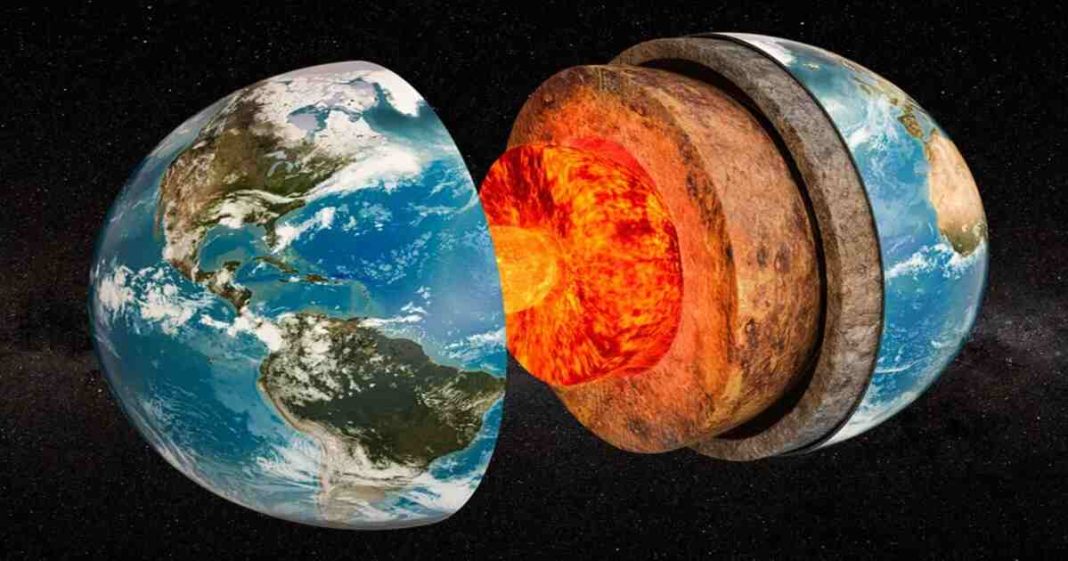Scientists have recently discovered a vast ocean concealed beneath the Earth’s crust, located about 400 miles below the surface. This immense reservoir of water is stored in rock known as “ringwoodite,” a mineral that acts like a sponge, absorbing water deep within the Earth’s mantle.
New State of Water
The water within this underground ocean exists in a unique state that defies conventional understanding. Unlike the common states of matter—solid, liquid, or gas—researchers have found that the water is stored in a novel “sponge-like” form within the mantle rock. This remarkable finding was detailed in a 2014 scientific paper titled “Dehydration Melting at the Top of the Lower Mantle,” which highlighted the unique properties of ringwoodite.
Read More: NASA detects invisible electric field around Earth
According to Steve Jacobsen, a geophysicist involved in the study, the crystal structure of ringwoodite is particularly suited to attract hydrogen and trap water. “The ringwoodite is like a sponge, soaking up water,” Jacobsen explained. “There is something very special about the crystal structure of ringwoodite that allows it to attract hydrogen and trap water. This mineral can contain a lot of water under the extreme conditions of the deep mantle.”
Whole-Earth Water Cycle
The discovery has significant implications for our understanding of the Earth’s water cycle. Jacobsen suggests that this underground ocean could explain the vast amount of liquid water found on the Earth’s surface. “I think we are finally seeing evidence for a whole-Earth water cycle, which may help explain the vast amount of liquid water on the surface of our habitable planet,” he added. “Scientists have been looking for this missing deep water for decades.”
This revelation came about after scientists studying earthquakes noticed that seismometers were picking up shockwaves beneath the Earth’s surface. These seismic readings led them to identify the presence of water stored within the ringwoodite rock.
Read More: Intense solar storm hits Earth, bringing Aurora Borealis to unusually southern latitudes
The implications of this discovery are staggering. If ringwoodite contains just 1% water, it could mean that there is three times more water stored beneath the Earth’s surface than in all the oceans combined. This finding challenges previous assumptions about the Earth’s water reserves and opens new possibilities for understanding the planet’s geology and hydrology.














